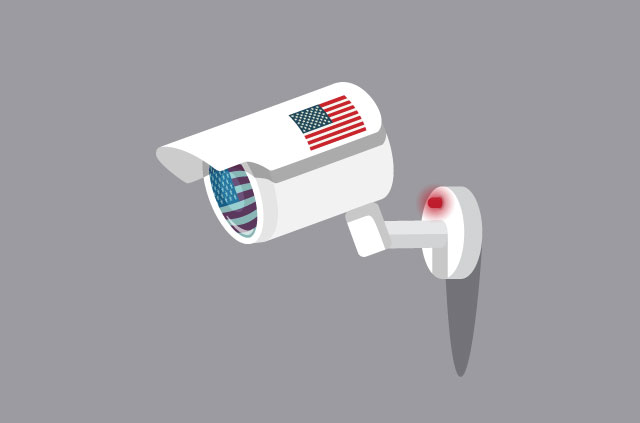This Horse Has Bolted....
"NSO technology has helped stop vicious crimes and deadly terrorist attacks around the world.""We do not tolerate misuse of our products and we regularly vet and review our contracts to ensure they are not being used for anything other than the prevention or investigation of terrorism and crime."
NSO Group, developer, government cyber-intelligence tools
"You've got a lot of people entering the arena that are new and don't play by the same rules."
"It's like putting a military-grade weapon in the hands of someone off the street."
Brian Bartholomew, security researcher, Kaspersky Lab, digital security company
"The assumption used to be that when you left the N.S.A., you'd never do that kind of offensive work again."
"Now, clearly there is a market for it."
"Even the smallest country, on a very low budget, can have an offensive capability [or initiate online attacks against adversaries]."
"The barriers to entry in this space are getting lower and lower."
Robert Johnston, founder, Adlumin cybersecurity
 |
| Though the scale of the surveillance was shocking at the time, it’s no longer the en vogue news story. But the fact remains that NSA continues to monitor every American and the citizens of many allied countries, with the backing of the U.S. government and large portions of Congress. Express VPN |
We have entered the era of Internet spying and cyberwarfare as the new frontier of engagement between countries seeking the upper hand in negotiations as well as protecting themselves from the malign plans of enemies and groups seeking to sow chaos and terror. These graduates of intelligence services have succeeded in establishing their own companies whereby remote access to electronic devices has been achieved.
Initially the appeal was for cellphone companies to be able to gain remote access to customers' devices for maintenance; much like Windows accesses computers downloaded with their software, for continual upgrades. Western spy services began to view such possibilities as useful for their purposes as well. Mobile surveillance tools fit the bill. Mexico credits its contract with NSO as responsible for gains it made in its war against drug cartels and the capture of El Chapo.
Saudi Arabia is said to have used such a tracking tool to spy on Jamal Khashoggi in its violently clumsy plan to rid itself of a harsh critic of the Kingdom's rulers. A U.S. company, CyberPoint, had contracts with the United Arab Emirates for protection against computer attacks. Out of that business contact came the UAE's own company, DarkMatter, employing a half-dozen U.S. employees of CyberPoint, former N.S.A. and C.I.A. officers.
The use of these systems has spread to local and federal and provincial police forces within Canada, as elsewhere internationally, many of which now have graduated to the use of cellphone surveillance technology. Not, they emphasize, to capture people's cellphone data, conversations, contacts, but to foil attempts by criminal groups running askew of the law, to better protect society and ordinary citizens. A little like denying that there is no need for privacy, anywhere, for anyone.
 |
| Depending on the device and surveillance approach used, an IMSI catcher can cast a wide net designed to harvest data transmissions from any cellular device within range, rather than target only the person of interest to law enforcement. It functions by fooling cellphones into believing it is a legitimate cellphone tower. (CBC News) |
"[There are concerns there is no warrant process specific to IMSI catchers that establishes strict limits on how the technology is used given its potential for mass surveillance]."
"It's nothing but a policy choice for some law enforcement not to use the content interception capabilities [features some IMSI catchers have to eavesdrop on any cellphone within a radius of several blocks]."
"[It's hard to believe] the tantalizing availability of such technology is not going to be exploited. It will."
"We want the police to have the appropriate tools. That they don't have the appropriate oversight and that those tools have the potential for abuse […] the public cares very much about that."
Micheal Vonn, policy director, B.C. Civil Liberties Association, legal expert on privacy
"[The Calgary police force has owned one IMSI catcher since 2015, used in six investigations that year, and eight more in 2016]."
"[The device is deployed by] a very small group of trained operators [and is only used to identify suspects' devices — not track their location or collect the content of their communications.]"
"It's the same as the RCMP. We don't intercept private communications."
Ryan Jepson, the head of Calgary police's technical operations section
 |
| An IMSI catcher pretends to be a cellphone tower to attract nearby cell signals. When it does, it can intercept the unique ID number associated with your phone, the International Mobile Subscriber Identity, or IMSI. That number can then be used to track your phone. (CBC) |
Labels: Cybersecurity, Expanding Technology, Internet Spying, Surveillance

<< Home